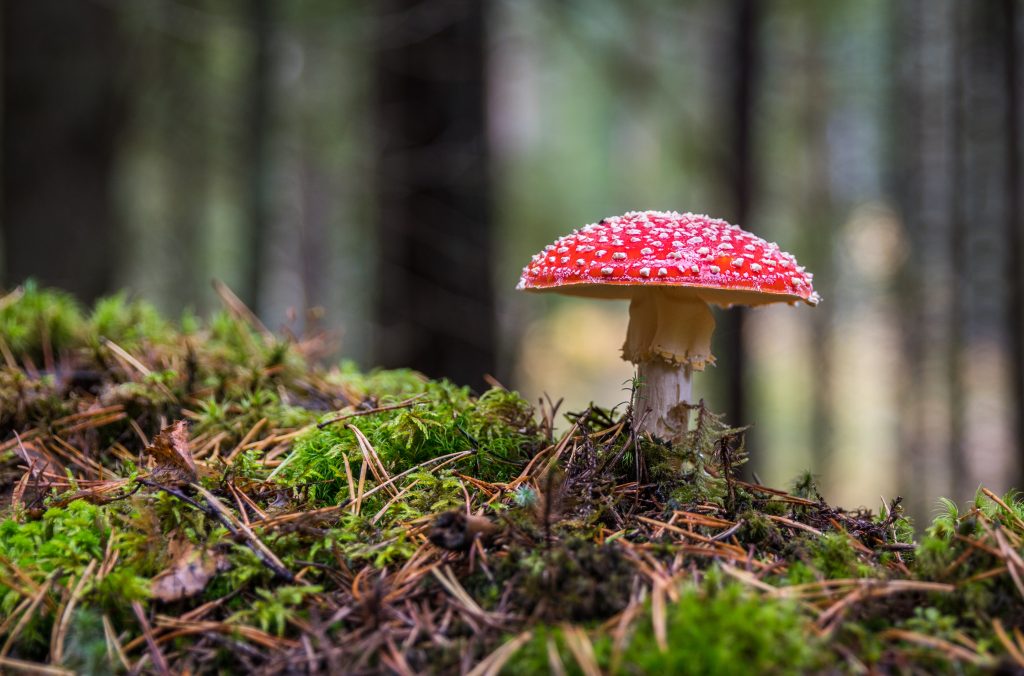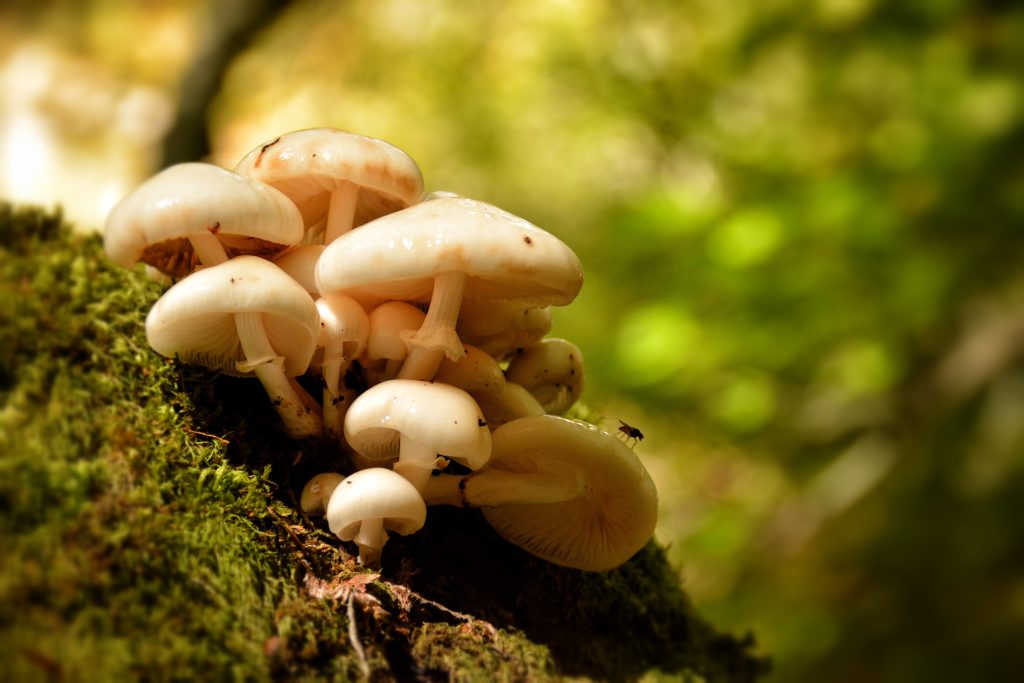Mushrooms and slime mold growing in the garden? Some might think this spells bad news for their plants, but this isn’t the case. In fact, fungi play a vital role in one’s garden.
Mushrooms often get a bad rap as a few are toxic and are seen as a sign of internal rot. What they don’t know is that mushrooms actually provide huge benefits to one’s landscape and greenery. This begs the question…
Should You Grow Mushrooms?

The quick answer is yes. Fungi, molds, and other bacteria are the workhorses of soil. They don’t only help nurture plants; they also keep the soil healthy. The benefits of microbes and fungi in our gardens are immense and many of the mechanisms are only just starting to be understood.
Growing mushrooms is good for the garden and a fun hobby anyone can enjoy. There are many ways to start with fungi culture, the art of growing fungi such as mushrooms. Using starter kits, such as a shiitake mushroom growing kit, is a quick way to kick off the hobby.
Another essential tool is a sharp harvesting and foraging knife, which helps scrape and clean mushrooms quickly and easily. Gardeners will need this when controlling mushroom growth or harvesting mushrooms for consumption.
Mushroom, Fungi, Mycelium: How Are They Connected?
Before delving into the benefits of mushrooms, it’s important to know the different terms associated with them.
Fungi is the name of the kingdom of spore-producing organisms that consume organic matter, such as yeast, mold, and mushrooms.
Meanwhile, mushrooms serve as the fungi’s fruiting bodies where spores are produced. These shrooms come from networks of mycelium, a root-like vegetative structure that spreads throughout the soil and creates connections between plants. This helps break down organic matter, nourishing the fungus. Meanwhile, spores act like seeds for fungi that allow them to propagate.
Mushrooms don’t grow like plants. Since they don’t have chlorophyll to absorb sunlight for food, they eat their nutrition from living or dead plants. Compared to plants that love sunlight, mushrooms prefer cool, moist places. This is why gardens in humid environments often notice mushrooms popping up more often than in other areas.
How Growing Mushrooms Benefits Your Backyard
Around 80 to 90% of plants benefit from mycorrhiza, a type of fungi naturally present in the soil. Below are some interesting facts about beneficial fungi every gardener should know.
- Enhances plant health and growth
If mushrooms suddenly pop out near plants, this is often a good sign. These little fungi have a symbiotic relationship with plants below the surface. Mushrooms help nourish plants to produce sugars that mushrooms feed off. Looking at the big picture, they’re helping each other grow.
- Increases the surface area of plant roots
With the fungal network created by mycelium, mushrooms help plant roots’ surface area absorb more nutrients and water. With a broader surface area, plants are able to better tolerate extreme weather conditions like drought.
- Protects against diseases
With mushrooms around, plants become more resistant to stress and diseases with more nutrients being available. And when their plants are healthy, gardeners are happier and more efficient with their work.
Mushrooms don’t only benefit plants. They keep diseases transmitted through the soil at bay and increase drainage simultaneously.
- Reduces the need for fertilizers.
Having mushrooms around usually means having healthy soil. Since they feed on organic matter, such as dead plants and animals, they absorb their remaining nutrients and make them available in the soil. This process is called saprophytism. Even bacteria or insects cannot replicate this ability, which makes mushrooms and fungi a great asset to any garden.
Since nutrient-rich soil aids plant growth, gardeners would not need to add chemical fertilizers that adversely affect the environment.
Controlling Mushrooms

While mushrooms are beneficial, some may disrupt the garden’s overall look, especially for gardeners who grow specific plants. Some tips to keep mushrooms from sprouting include the following:
- Clean the area of any dead materials regularly, including dead leaves, twigs, and grass clippings
- Install drainage systems in areas that are shadier and collect water.
- Apply nitrogen-rich fertilizers that hasten the decay of organic materials.
- Aerate the garden with a pitchfork to break up the fungal layer.
- Remove mushrooms as soon as they sprout.
Experience the Benefits of Mushrooms Now
Mushrooms have many benefits for plants, but gardeners may consider some a nuisance. A solution to this is purposely growing mushrooms in their own backyards. It’s fun to watch, beneficial to plants, and a great source of nutritious, delicious food—which saves you money in the long run.

Leave a Reply